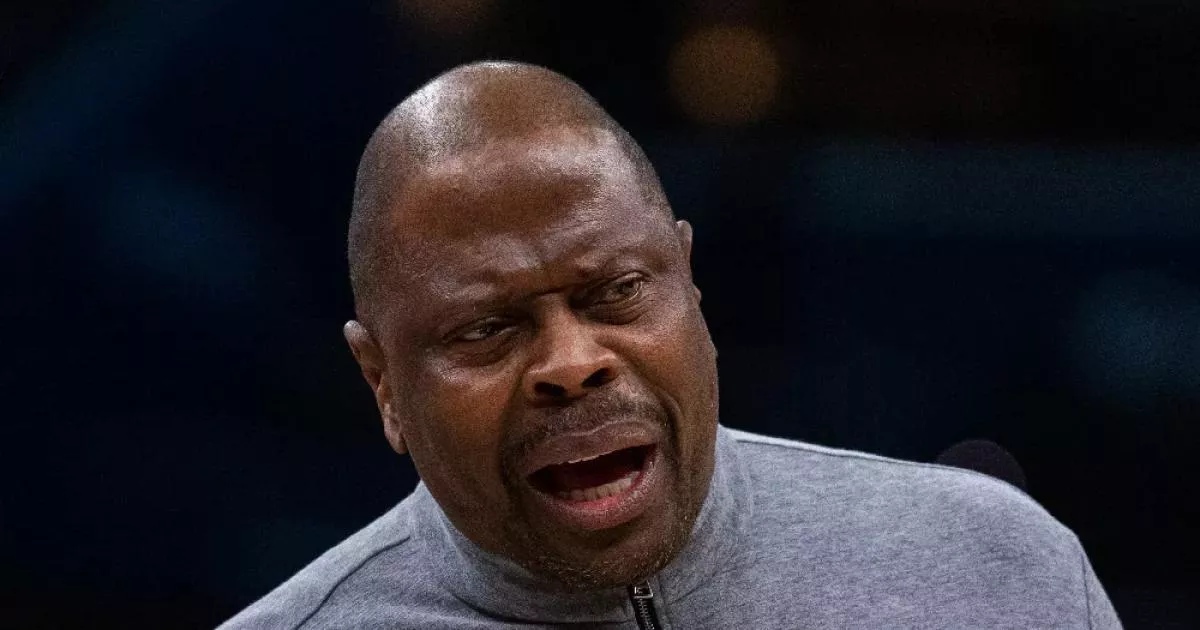Patrick Ewing, a Jamaican-American former professional basketball player and current coach, is celebrated as one of the greatest centers in NBA history. He spent the majority of his career as the starting center for the New York Knicks, leading them to prominence in the 1990s. He finished his career with short stints with the Seattle SuperSonics and Orlando Magic. Today, he serves as a basketball ambassador for the Knicks.
1943: Georgetown's Final Four Appearance
In 1943, the Georgetown Hoyas advanced to their first Final Four since 1943.
August 5, 1962: Patrick Ewing's Birth
On August 5, 1962, Patrick Aloysius Ewing Sr. was born in Jamaica. He later became a prominent basketball player and coach.
1973: Knicks Appearance in NBA Finals
Since 1973, Ewing led the Knicks to the 1994 NBA Finals, their first appearance in the Finals since 1973.
1975: Move to the United States
In 1975, Patrick Ewing moved from Jamaica to the United States, settling with his family in Cambridge, Massachusetts.
1979: State Championship
In 1979, Patrick Ewing led Cambridge Rindge and Latin to a Massachusetts Div. I state championship.
1981: Freshman Season
In 1981, Patrick Ewing became one of the first college players to start and star on the varsity team as a freshman for the Georgetown Hoyas.
1981: State Championship
In 1981, Patrick Ewing led Cambridge Rindge and Latin to a Massachusetts Div. I state championship.
1982: "Game of the Decade"
In 1982, Patrick Ewing and the Hoyas faced off against #1 ranked Virginia and Ralph Sampson in the "Game of the Decade". Virginia won 68-63.
1983: Big East Regular Season Championship
In 1983, Patrick Ewing led Georgetown to the Big East regular-season championship, the Big East tournament championship and another #1 seed in the NCAA Tournament.
1984: Senior Year and Awards
During his senior year in 1984, Patrick Ewing was named the Big East Player of the Year again, and the team won the Big East tournament title.
1984: Olympic Gold Medal
In 1984, Patrick Ewing won an Olympic gold medal as a member of the United States men's Olympic basketball team.
1984: NBA Draft
Until 1984, the NBA held a coin toss between the teams with the worst records in each conference and the winner of the coin toss selected first.
1985: Drafted by the Knicks
In 1985, Patrick Ewing was drafted by the New York Knicks and signed a 10-year, $32 million contract.
1985: NBA Draft
In 1985, the NBA handled matters differently. Every team that qualified for the playoffs received positions based on their winning percentage, and the teams that did not were placed in a lottery.
1986: First Sneaker Endorsement with Adidas
In 1986, Patrick Ewing's first sneaker endorsement was with Adidas.
1990: Marriage to Rita Williams
In 1990, Patrick Ewing married Rita Williams.
1991: Licensing Deal with Next Sports
In 1991, Next Sports signed a licensing deal to release footwear under Ewing's name in the United States under the Ewing Athletics company.
1992: Dream Team Member
In 1992, Patrick Ewing was a member of the original Dream Team at the Olympic Games.
1992: Second Olympic Gold Medal
In 1992, Patrick Ewing won his second Olympic gold medal as a member of the "Dream Team" representing the United States.
1992: Eastern Conference Semifinals Game 1
In 1992, during Game 1 of the Eastern Conference Semifinals, Patrick Ewing finished with 34 points, 16 rebounds, and 6 blocks, leading the Knicks to a 94-89 victory over the Chicago Bulls.
April 14, 1993: Ewing's Embarrassment
On April 14, 1993, during a game between the Knicks and the Charlotte Hornets, Muggsy Bogues knocked the ball loose from Patrick Ewing as he was shooting.
1993: Led NBA in Defensive Rebounds
In 1993, Patrick Ewing led the NBA with 789 defensive rebounds.
1993: Loss Against the Bulls
In 1993, the Bulls won Game 5 in New York 97–94 after Ewing's teammate, Charles Smith, was repeatedly blocked down low by Bulls defenders on the game's final possession.
1993: Wide-Open Year in the NBA
With Jordan out of the league, 1993–94 was considered a wide-open year in the NBA, and Ewing had declared that 1994 would be the Knicks' year.
1994: Knicks Appearance in NBA Finals
In 1994, Patrick Ewing and the New York Knicks appeared in the NBA Finals.
1994: NBA Finals Loss
In 1994, Patrick Ewing's Knicks lost in the final seconds of Games 6 and 7 to Hakeem Olajuwon's Houston Rockets in the NBA Finals.
1995: Game 7 Loss
In 1995, a potential game-tying finger roll by Patrick Ewing rimmed out in the dwindling seconds of Game 7 of the Eastern Conference Semifinals, resulting in a loss to the Indiana Pacers.
1996: Gold Club Encounter
In 1996 and 1997, Patrick Ewing received oral sex from dancers at the Gold Club.
1996: Ewing Athletics Ceases Operations
In 1996, Ewing Athletics, which released footwear under Patrick Ewing's name, ceased operations.
1996: Appearance in Space Jam
In 1996, Patrick Ewing appeared as himself in the movie Space Jam, alongside other NBA players like Charles Barkley, Shawn Bradley, Larry Johnson and Muggsy Bogues.
1996: Named one of the 50 Greatest Players in NBA History
In 1996, Patrick Ewing was selected as one of the 50 Greatest Players in NBA History.
December 20, 1997: Wrist Injury Against Milwaukee Bucks
On December 20, 1997, Patrick Ewing suffered a severe wrist injury during a game against the Milwaukee Bucks, including a displaced fracture and torn ligaments, leading to emergency surgery.
1997: Gold Club Encounter
In 1996 and 1997, Patrick Ewing received oral sex from dancers at the Gold Club.
1997: Involvement in Game 5 Brawl
In 1997, Patrick Ewing was involved in a Game 5 brawl during the Eastern Conference Semifinals against the Miami Heat, ultimately leading to the Knicks' elimination from the playoffs.
1998: Divorce from Rita Williams
In 1998, Patrick Ewing divorced Rita Williams.
1999: Knicks Reach Conference Finals
In 1999, Patrick Ewing and the Knicks reached the Eastern Conference Finals, advancing past the Toronto Raptors and Miami Heat.
1999: Knicks Appearance in NBA Finals
In 1999, Patrick Ewing and the New York Knicks appeared in the NBA Finals.
1999: 22,000 Points and 10,000 Rebounds
In 1999, Patrick Ewing became the 10th player in NBA history to record 22,000 points and 10,000 rebounds.
2000: Mourning's Diagnosis
In 2000, After Alonzo Mourning was diagnosed with a kidney ailment, Patrick Ewing promised to donate one of his kidneys if needed.
2000: Final Season with the Knicks
In 2000, Patrick Ewing played his final season with the Knicks, reaching his 1,000th NBA game and setting a franchise record with 1,039 games played for the team.
2000: Trade to Seattle SuperSonics
In 2000, Patrick Ewing requested and was traded from the New York Knicks to the Seattle SuperSonics as part of a four-team trade.
July 2001: Testimony in Federal Trial
In July 2001, Patrick Ewing testified in the federal trial of an Atlanta club owner charged with facilitating prostitution, admitting to receiving oral sex from dancers but denying payment or involvement in prostitution.
September 18, 2002: Ewing Announces Retirement
On September 18, 2002, Patrick Ewing announced his retirement from professional basketball after playing one season with the Seattle SuperSonics and another with the Orlando Magic.
2002: Assistant Coach for Washington Wizards
From 2002 to 2003, Patrick Ewing served as an assistant coach for the Washington Wizards.
February 28, 2003: Jersey Retirement Ceremony
On February 28, 2003, the New York Knicks retired Patrick Ewing's jersey number 33 in a ceremony at Madison Square Garden.
2003: Assistant Coach for Houston Rockets
From 2003 through 2006, Patrick Ewing worked as an assistant coach for the Houston Rockets.
2003: Kidney Compatibility Testing
In 2003, Patrick Ewing was tested for kidney compatibility with Alonzo Mourning, but Mourning's cousin was found to be a better match.
2003: Tim Duncan breaks Ewing's record
In 2003, Tim Duncan broke Patrick Ewing's record for most blocked shots in a Finals series with 32.
2003: Knicks Retire Ewing's Number
In 2003, the New York Knicks retired Patrick Ewing's number 33.
2006: Resigns from Rockets
In 2006, Patrick Ewing resigned from his position as an assistant coach with the Houston Rockets to spend more time with his family.
July 3, 2007: Assistant Coach for Orlando Magic
On July 3, 2007, Patrick Ewing was hired as one of four assistants to serve under Stan Van Gundy, the head coach for the Orlando Magic.
2008: Drafted by Sacramento Kings
In 2008, Patrick Ewing Jr. was drafted by the Sacramento Kings in the second round, later traded to the New York Knicks.
2008: Induction into Basketball Hall of Fame
In 2008, Patrick Ewing was inducted into the Basketball Hall of Fame for his individual career.
2009: Dwight Howard surpasses Ewing's record
In 2009, Dwight Howard surpassed Patrick Ewing's NBA Finals record for most blocked shots in a single game.
2009: Snickers Ad
In 2009, Patrick Ewing appeared in an ad for Snickers, humorously suggesting that eating the candy bar might lead to being dunked on by 'Patrick Chewing'.
2009: Induction into U.S. Olympic Hall of Fame
In 2009, Patrick Ewing was inducted into the U.S. Olympic Hall of Fame as a member of the "Dream Team".
2009: Magic Reach NBA Finals
In 2009, while Ewing was an assistant coach, the Orlando Magic reached the NBA Finals, losing to the Los Angeles Lakers.
2010: Coaches Son in Summer League
In 2010, Patrick Ewing coached his son, Patrick Ewing Jr., in the summer league, where Ewing Jr. played for the Orlando Magic.
2010: Hall of Fame Induction as Part of Olympic Team
In 2010, Patrick Ewing was inducted into the Basketball Hall of Fame as a member of the 1992 Olympic team.
2012: Resurrection of Ewing Athletics Line
In 2012, David Goldberg and GPF Footwear LLC teamed up with Patrick Ewing to resurrect the Ewing Athletics line.
November 8, 2013: Interim Head Coach for Charlotte Bobcats
On November 8, 2013, Patrick Ewing became the interim head coach for the Charlotte Bobcats, losing his first game against his former team, the Knicks, 101-91.
2014: Donation to John R. Thompson, Jr. Intercollegiate Athletics Center
In 2014, Patrick Ewing and David Falk donated $3.3 million to the John R. Thompson, Jr. Intercollegiate Athletics Center at Georgetown University.
2014: First NCAA tournament Appearance since 2014
The 2021 Big East Conference tournament win marked Georgetown's first NCAA tournament appearance since the 2014-15 season.
2015: Georgetown's Postseason Tournament
Georgetown's first postseason tournament since 2015 was in Ewing's second season.
April 3, 2017: Hired as Head Coach of Georgetown Hoyas
On April 3, 2017, Patrick Ewing was hired as the head coach of his former college team, the Georgetown Hoyas.
May 14, 2019: Represents Knicks During NBA Draft Lottery
On May 14, 2019, Patrick Ewing represented the Knicks during the NBA draft lottery, securing the third overall pick in the 2019 NBA draft.
2019: NIT Bid
In Ewing's second season, Georgetown was awarded a bid in the 2019 National Invitation Tournament, their first postseason tournament since 2015.
2020: Big East Tournament Cancellation
In Ewing's third season, the Hoyas lost in the first round of the 2020 Big East tournament, which was then cancelled due to the COVID-19 pandemic.
2021: NBA Scoring List Ranking
As of 2021, Patrick Ewing was ranked 23rd on the NBA scoring list with 24,815 points.
2021: Big East Conference Tournament Championship
In 2021, Patrick Ewing led the Georgetown Hoyas to the Big East Conference tournament championship, securing a spot in the NCAA Division I basketball tournament.
2021: Named one of the 75 Greatest Players in NBA History
In 2021, Patrick Ewing was selected as one of the 75 Greatest Players in NBA History.
2022: Loss in the 2022 Big East tournament
In Ewing's fifth season, the Hoyas posting an overall record of 6-25 and going winless in Big East Conference play at 0-19 in the regular season followed by a first-round loss in the 2022 Big East tournament.
March 9, 2023: Fired as Coach
On March 9, 2023, Patrick Ewing was fired as coach of the Georgetown Hoyas.
October 2024: Rejoins Knicks as Basketball Ambassador
In October 2024, Patrick Ewing rejoined the New York Knicks as a basketball ambassador.
Mentioned in this timeline

Basketball is a team sport played on a rectangular court...
Adidas AG is a German multinational corporation and the second-largest...

Michael Jordan widely considered one of basketball's greatest players significantly...
Virginia a state in the Southeastern and Mid-Atlantic US lies...
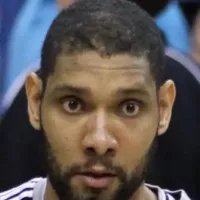
Tim Duncan nicknamed the Big Fundamental is a retired American...

Seattle is the most populous city in Washington state and...
Trending
27 minutes ago Ski Mountaineering to Debut at Milan-Cortina Winter Olympics in 2026.
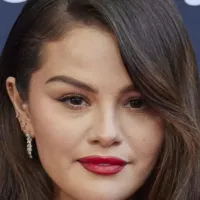
1 hour ago Selena Gomez's Spiced-Plum Manicure and TikTok Clone Theory Spark Buzz
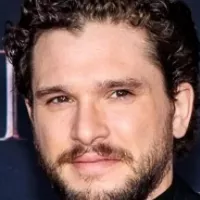
1 hour ago Kit Harington and Sophie Turner Gag After On-Screen Kiss in New Movie

1 hour ago Trump administration updates, Iran nuclear efforts, and White House controversies unfold.
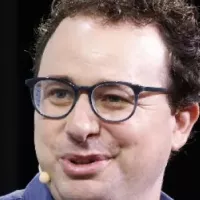
1 hour ago Dario Amodei Highlights India's Central Role in Shaping AI's Future at AI Summit.
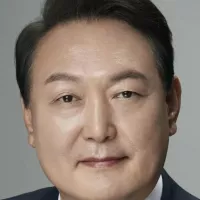
2 hours ago Yoon Suk Yeol, South Korean ex-president, receives life sentence for insurrection and martial law.
Popular

Jesse Jackson is an American civil rights activist politician and...
Randall Adam Fine is an American politician a Republican who...

Pam Bondi is an American attorney lobbyist and politician currently...

Barack Obama the th U S President - was the...

Martin Luther King Jr was a pivotal leader in the...

Ken Paxton is an American politician and lawyer serving as...
